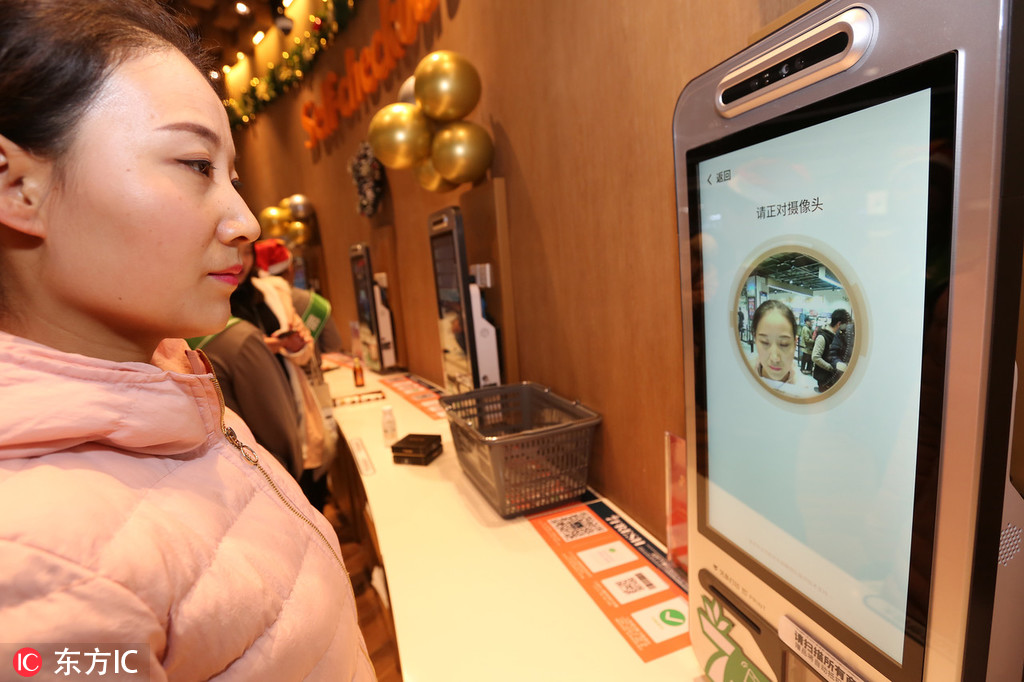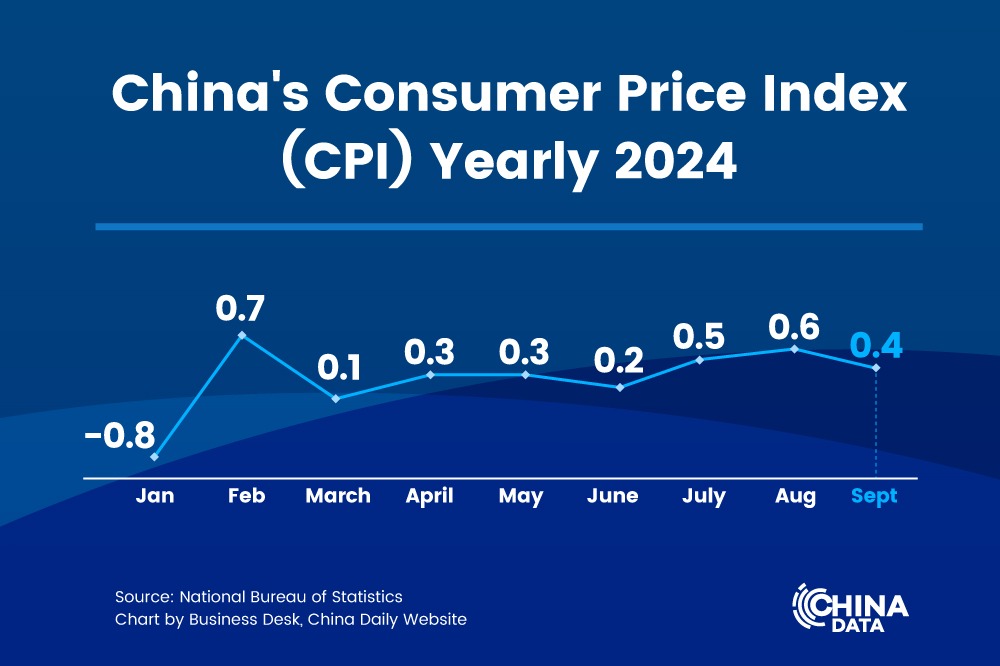China retail players shape industry landscape via innovation


NEW YORK - Chinese e-commerce giants, technology device producers and financial solution providers are shaping the retail industry in China and the world at large, industry leaders and insiders said at a major retail convention and expo.
"We don't see this kind of application of facial recognition linked with payment. It's so cool. It's really interesting. We're talking about this in Europe, and we don't have it either," said Elisabeth Orn Sylve with Swedish operations of Microsoft Corporation on her tour to the booth of Freshippo, a robot-driven restaurant and supermarket operated by China-based Alibaba Group.
China players scale up applications
Freshippo makes its debut at the ongoing Retail's Big Show 2019 organized by the US National Retail Federation, showcasing its unmanned check-out devices featuring facial recognition, camera surveillance and others.
"We have a number of advantages compared with other countries in the world" as China's mobile internet witnesses fast development, said Xulin Guo, chief of staff and business assistant to CEO of Freshippo.
The advantage of Freshippo also lies in the strong support from technology research and development division with Alibaba Group, Guo told Xinhua on Monday.
"We see the future of retail industry featuring better customers' experience and high operating efficiency and takes efforts to materialize the envisioned products step by step," said Guo, hoping to offer inspirations to peers in the world.
Alibaba has rolled out more than 10,000 self-checkout machines at its own offline stores and stores operated by third parties since the launch of the product around a year ago, according to Freshippo.
It is estimated that the self-checkout machines would be able to do the job of three to six cashiers, and customers could save 30 percent of time in checking out.
Alibaba has opened around 120 Freshippo chain supermarkets in around 20 Chinese cities since the opening of the first store in January 2016.
As the third largest internet firm in the world by revenue and a major e-commerce platform, JD.com has cutting edge technological application at scale with over 100 drone bases across China, said Harlan Bratcher, global business development head of JD Fashion on Tuesday in a dialogue at Retail's Big Show 2019.
JD.com has introduced pilot drone-enabled delivery of goods in mountainous areas in Southwest China and opened about 20 unmanned stores in China and another one in Indonesia.
Cross-border payment booming
The fast development of e-commerce in China and the United States has given birth to a fast-growing business facilitating cross-border payment between e-commerce platforms and online stores.
As one payment partner of Chinese e-commerce payment giant Alipay and WeChat Pay in North America, Citcon said it has partnered with more than 5,000 top merchants in the United States.
The transaction costs via Citcon would be as much as 40 percent lower than that by international credit cards, without fraud and chargeback liability for merchants to accept Alipay and WeChat Pay, according to the company.
"Over the past two years, we've witnessed how retailers in North America embrace and succeed with Chinese mobile payment solutions Alipay, WeChat Pay and UnionPay QR Code payment," said Citcon in a press release.
While Citcon works on to enable international merchants to accept Chinese QR-based mobile wallets in-store and online, a number of banks operating in the United States are working with third-party payment companies to enable Chinese e-commerce players to collect payment from US e-commerce platforms like Amazon, eBay, Wish and others.
Bank of China New York Branch launched a cross-border payment system named e-MPay in 2016 in cooperation with a third-party payment processor.
Chinese e-commerce players operating at Amazon, eBay and other platforms only need to pay around 1 percent of commission fees rather than the previous 3 percent to 5 percent while business cycle has been shortened to one working day from one or two weeks, according to Bank of China New York Branch.
The fast growing business also drew the participation of Citibank, according to industry insiders.
Counect International Technology Ltd., a Beijing-based maker of data collection device and offline mobile payment device, showcased its flagship device Cube designed to be installed at malls and stores.
"Cube draws great interests and good feedbacks from system integrators, governmental authorities," said Hans Yu, founder of Counect International. The device has been used by the Malaysian government to monitor sales and taxation in addition to utilization in more than 60 Chinese cities, added Yu.
Learn more from China
China has been a leading force in applying artificial intelligence (AI), robotics, drones and other cutting edge technologies, which makes it rich of experiences and application cases.
There is a lot can be learnt from the technologies that are already applied in large scale in China and the implications for the United States and Europe, said Rod Sides, vice-chairman of Deloitte LLP, who also leads the retail, wholesale and distribution practice in the United States and the retail consulting practice globally.
Sides noted China has an online economy scale of almost $1 trillion and there has been the massive adoption of digital payment systems in the country.
China just leapfrogged in adopting mobile phones and became the largest cashless economy in the world, said Bratcher.
"I think China is a main hub of testing all the things in terms of innovation like AI technology, as we have partnership with Alibaba and other vendors. For us, it's going be a lot of focus coming from China in terms of knowledge I was looking for as well", said Edward H J Park, senior vice-president with North America operations of Guess Inc.
The next breakthrough for retail sector relies on 5G technologies, said Joy Tang, CEO and founder of Markable.ai, an AI computer vision company for the retail sector.
AI is making a lot of differences not only in the future but also right now to the workforce, customers and retailers, said Hui Cheng, senior director with Silicon Valley Research Center of JD X, the innovation lab for JD.com.
As an online and offline retailer, JD has the opportunity to combine them and deliver new technologies in the store, added Cheng.
The next generation of retail would be characterized by decentralization thanks to the flexibility enabled by artificial technology, machine learning, robotics and other technologies, according to Steven Blitz, chief US economist and managing director with investment research firm TS Lombard.
"Actually if you look out over the next five years, I would say the trends of manufacturing is an absolute reversal of what we've seen over the last hundred years, which is that you move to a decentralization of production," Blitz told Xinhua in an interview on the sidelines of Retail's Big Show.




































